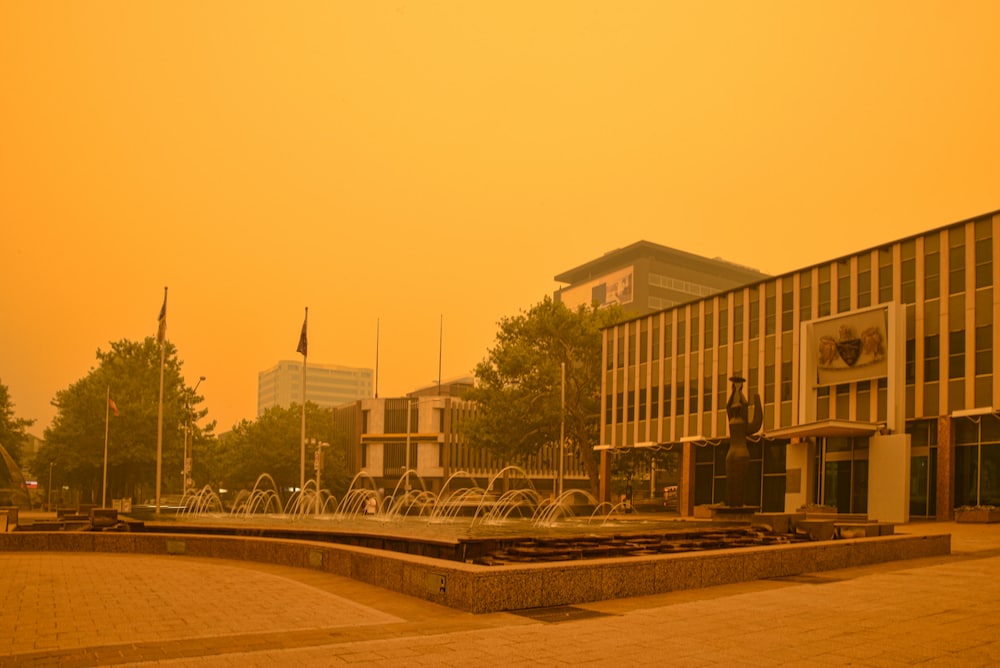Summer bushfires and winter woodfires increased particle pollution last year, but Canberra’s air quality met national standards nearly every day, according to a just-published report.
The ACT Air Quality Report 2020 monitors and assesses ambient air quality against the National Environment Protection (Ambient Air Quality) Measure (AAQ NEPM) standards for carbon monoxide, nitrogen dioxide, photochemical oxidants (such as ozone), and particulate matter.
Particle pollution spiked early last year (January to early February) due to the Black Summer bushfires, and increased during winter, because of emissions from domestic wood heaters.
In early January 2020, particle pollution levels were more than 20 times PM10 (particulate matter less than or equal to 10 microns in diameter) or 45 times PM2.5 (particulate matter less than or equal to 2.5 microns in diameter) national standards.
The ACT exceeded the daily PM10 standard on 27 days in 2020, compared to 29 days in 2019 and six days in 2018, due to bushfires or dust storms.
The daily PM2.5 standard was exceeded on 39 days last year, compared to 32 days in 2019 and five days in 2018. Only 13 exceedance days were related to wood heater emissions, between mid-May and early August.
The Report suggests this increase was because people stayed at home more during the COVID-19 pandemic. As a comparison, only two days in 2019 and one day in 2018 exceeded the national standard in winter months.
Carbon monoxide and nitrogen dioxide concentrations also increased during the bushfire period, but met AAQ NEPM standards on 99.5% of days during the year.
Ozone met AAQ NEPM standards on 99% of days.
More nitrogen dioxide and ozone exceedances were recorded, but the overall levels for those two pollutants were lower than in 2019, because fewer people were driving vehicles and because temperatures were cooler in the second half of 2020.
Government response
ACT Environment Minister Rebecca Vassarotti said bushfire smoke and dust storms threatened air quality in the ACT, as climate change would increase the frequency and intensity of bushfires.
“We need to take action against climate change otherwise we will … ultimately have poorer air quality in the ACT,” Ms Vassarotti said.
The Minister will deliver the ACT Government’s smoke and air quality strategy to the Legislative Assembly by October, before the 2021-22 bushfire season. The strategy will incorporate several actions recommended by the Royal Commission into National Natural Disaster Arrangements:
- air quality standards for outdoor workers;
- the extent and quality of indoor and outdoor air quality monitoring, data and public information;
- measures to protect people, especially vulnerable people, from smoke, including the ability of public and private facilities to provide shelter and refuge from smoke;
- domestic woodfire smoke.
Wood heater smoke was an environmental and health issue, Ms Vassarotti said.
“Wood burning smoke is made up of a mixture of gases and fine particles which can be harmful to the environment and the health of people, especially those with heart or lung diseases.”
Burning 10 kilograms of wood in a modern wood heater can produce up to 15 grams of particulate matter, the same amount as a truck travelling 500km in heavy traffic, according to a 2020 article.
The ACT Government is addressing wood smoke pollution through:
- up-to-date air quality reporting and related public health advice through ACT Health’s Air Quality Health Advice Portal
- the regulation of the sale and supply of firewood
- the regulation of wood heaters sold in the ACT to ensure they meet current Australian Standards for emissions and efficiency
- the wood heater replacement program to replace old inefficient wood heaters with high efficiency alternatives
- the annual ‘Burn Right Tonight’ community education campaign which reminds ACT residents how to use wood heaters correctly to minimise air pollution
- the prohibition of wood heaters in new development areas where planning studies show that they would adversely impact air quality. The ACT Government has taken this approach for the development of the Molonglo Valley (except Wright), and previously with the suburbs of Dunlop and East O’Malley.
For more news:



